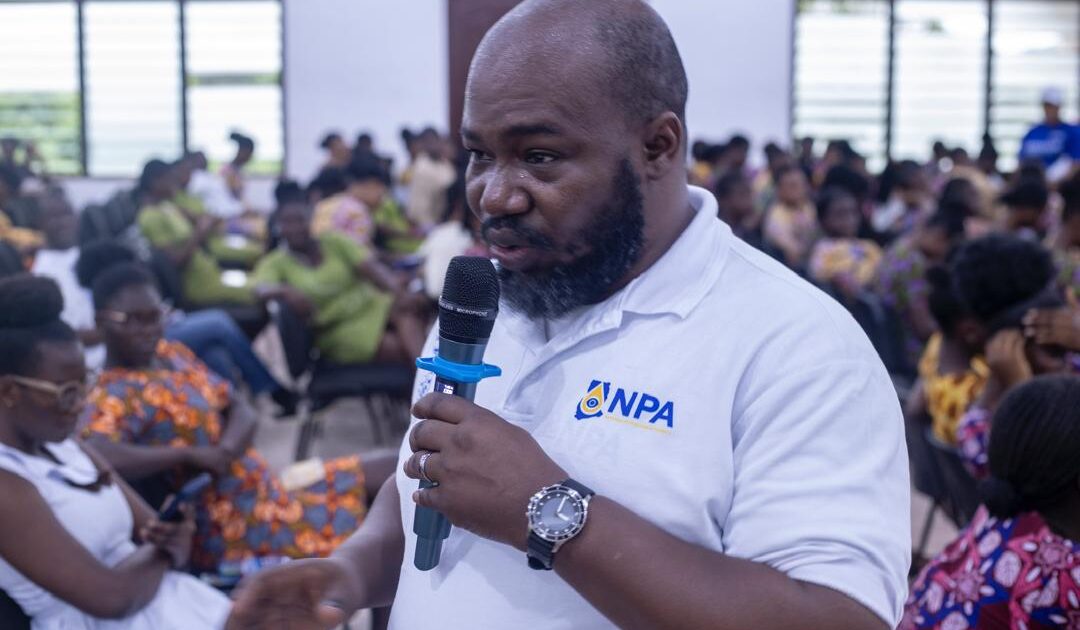The National Petroleum Authority (NPA) has issued a strong warning to the public against placing stones or other heavy objects on LPG cylinder regulators in an attempt to stop gas leaks.
According to the NPA, this practice is not only ineffective but also dangerous, as it has contributed to numerous fire outbreaks across the country.
Speaking at an LPG safety sensitization session at the University of Education, Winneba (UEW), Mr. Obed Kraine Boachie, Head of Gas (Commercial Regulation), explained that gas leaks are often caused by faulty hoses, valves, or ‘O’rings than the regulator itself. He emphasized that the proper solution is to replace defective parts with certified components from authorized LPG dealers.
Mr. Boachie reiterated this message during similar engagements at Holy Child College of Education in Takoradi, Nursing and Midwifery Training Colleges in Sekondi and Cape Coast, and Cape Coast Technical University.
These safety campaigns are part of the NPA’s broader initiative to promote the safe use of LPG, especially among students in training colleges and nursing institutions who often cook their own meals off-campus. The goal is to empower these students to become LPG safety ambassadors in their future communities.
The outreach also sought to educate students on the Cylinder Recirculation Model (CRM) and potential business opportunities within the LPG sector. Students were encouraged to share safety tips via social media to help spread awareness.
The sessions were well-attended by both students and faculty, with LPG safety leaflets distributed and a Q&A session held to address concerns.
Mr. Boachie also advised the public to always transport gas cylinders in an upright position, transport cylinders in well-ventilated vehicles and store them in well-ventilated areas or secure outdoor cages.
They should also check cylinder expiry dates and have them refurbished and recertified or replaced when they become obsolete.
In a related message, Ms. Eunice Budu Nyarko, Head of Consumer Services at the NPA, urged motorists to report suspected fuel station fraud within 48 hours of purchase.
She noted that timely reporting allows for prompt investigation before the fuel is sold out. However, reports made after 48 hours will still be investigated, with the station placed under surveillance if necessary.
“The NPA is committed to protecting the interests of consumers, stakeholders, and petroleum service providers,” she affirmed.
The NPA team also conducted live radio interviews and one-on-one LPG safety education sessions with market women, traders, hawkers, and drivers at the Takoradi Jubilee Market.




